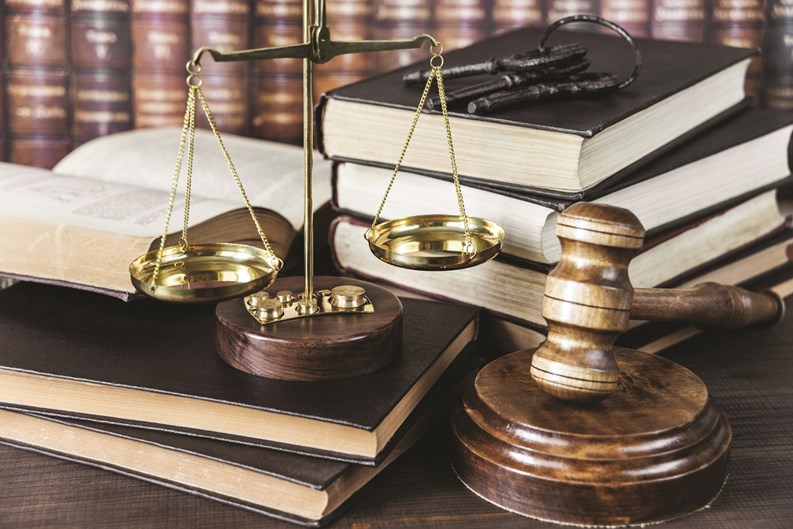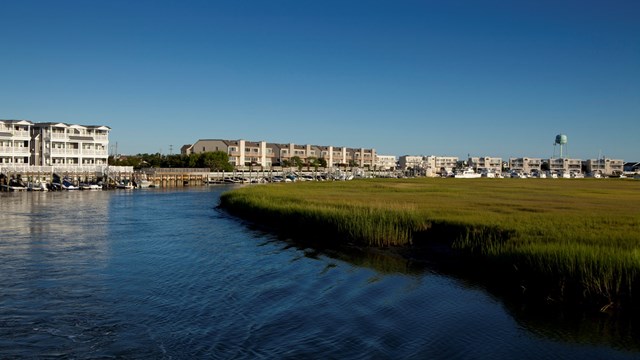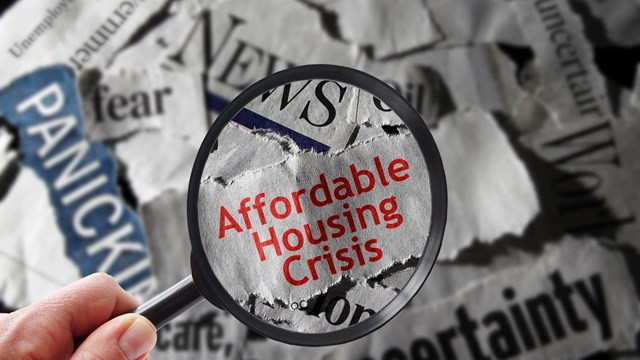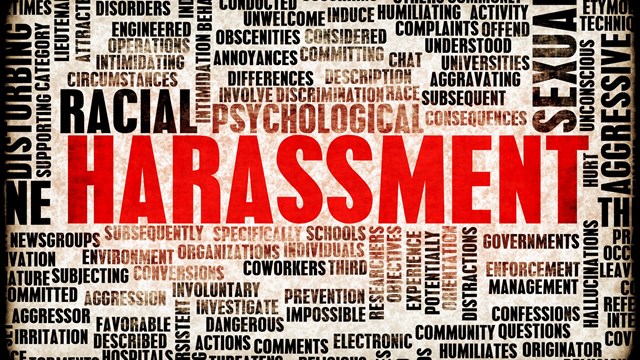Lawsuits should be the last resort for resolving conflicts within community associations. Alternative Dispute Resolution (ADR) and other mediation avenues make it possible for community associations to avoid litigation altogether. Nevertheless, neighbors often do decide to have their dispute resolved by a judge or jury. When lawsuits do happen, strong emotions are usually involved, and although people can usually co-exist within a community after a lawsuit has taken place, lingering hard feelings often remain long after the dispute has been settled.
But damaged relations should not be ignored; creating a peaceful community is ultimately in the best interest of all homeowners. If a community is viewed as a comfortable place to live, with harmonious relations between residents, both the qualitative and economic value of the community is enhanced. Homeowners and their associations should maintain healthy relationships for the effectiveness of the association and the well-being of the community.
Mediation Not Aggravation
Disputes that are handled using mediation, even if they do move on to the courtroom, may leave fewer wounds after the verdict has been rendered. Mediation can foster better relationships before, during, and after a lawsuit.
As neutral third parties, mediators can assist with the communications during the parties' negotiations. According to Simeon H. Baum, Esq., the president of New York City-based Resolve Mediation Services, Inc., negotiations can be handled in a respectful and humane manner, with careful consideration of the concerns of the parties involved. Through "active listening," trained mediators (oftentimes attorneys) can "model constructive modes of communication for the parties involved, while also validating, clarifying, empathizing, and summarizing, and performing the set of functions that foster dispute resolution."
And current New Jersey law requires ADR as an alternative to litigation. Although vaguely referenced, both the New Jersey Condominium Act and the Planned Real Estate Development Full Disclosure Act (PREDFDA), require community associations to provide "a fair and efficient procedure for resolution" of disputes between unit owners and the association, and between unit owners, "which shall be readily available as an alternative to litigation."
Community Associations Institute's New Jersey chapter (CAI-NJ) also has an established mediation program, and offers the services of trained mediators for any dispute involving resident homeowners, absentee homeowners, board members, managers and developers.
ADR is useful because it allows an easier resolution of many disputes through a hearing process, according to James Magid, a property manager and executive vice president with Wentworth Property Management in West Long Branch. "The mere ability to talk out the claim against the homeowner, and more importantly, the reasoning behind the action, not only helps resolve the matter but also sends a message to the community cautioning future homeowner behavior. I believe the ADR process does reduce litigation, bad feelings and hostility within associations," Magid says.
Most disputes within communities can be handled effectively through mediation and respect between neighbors can be preserved. But if the parties can not work out their own solution, and litigation becomes necessary, then the fallout will invariably be greater. According to Attorney Ronald Perl of Hill Wallack, Attorneys at Law in Princeton, and president-elect of the Community Associations Institute (CAI), "If you have to get a judge to issue orders, or a jury to issue a verdict, then the bad feelings take a lot longer to dissipate."
Thus, the question remains: Is it too late to co-exist peacefully in your community after a legal battle has divided community members? Has the damage already been done?
Never Having to Say 'You're Sorry'
Maybe not. Sometimes repairing hard feelings is as straightforward as offering an apology. But as Attorney Wayne S. Hyatt of Hyatt & Stubblefield, PC, in Atlanta, Ga., says in "Balancing Community and Governance: Reforming the Community Association," apologies are important but in many situations there is neither the will nor the way for an apology to happen.
When apologies may not be enough to repair relations, associations can take several actions. The first step is to identify which parties need to be involved. Does the entire community need to be involved, or can the situation be properly handled between the board, management, and individual shareholders? If the dispute occurred between an individual shareholder and the board, for example, then the resolution does not need to involve the greater community. If, by contrast, there were several homeowners involved in the dispute, with anger and gossip around the issue prevalent in the community, then the actions community associations take to address the relationships need to be broader in scope.
If the dispute involved a small number of people, an option communities can utilize to repair relationships is to have a board member or other shareholder check in with the affected parties, "to see how everything is going, basically looking for ways to normalize relations and bring the person back to the fold," according to Baum. An informal event, such as a barbecue, might also help community members to "bury the hatchet."
Repairing Relationships
For matters that have affected an entire community, Baum advises holding a community meeting to share the "good news concerning the dispute's resolution," or to discuss any lingering issues. Another way to communicate the news is to announce the verdict on the community's website or newsletter, if it maintains one. Baum advises to present the issues sensitively.
The board or manager may also want to use the "facilitative approach employed by mediators, to create the best environment for a satisfying and constructive dialogue. It is through this dialogue that the simmering discontent can resurface and be released." Associations also have the option of hiring a professional facilitator or mediator to guide the discussion.
A good way to foster better relations after a lawsuit is to avoid making the dispute personal. According to Michael Karpoff, an attorney and member of Hill Wallack's Community Association Law Practice Group, "a board who is challenged by a unit owner may feel that the owner is attacking them personally and demeaning them rather than simply contesting their action." If parties use the lawsuit to resolve the issue, rather than embarrass or demolish the other party, then both parties will be more likely to move forward peacefully after the issue has been resolved.
Karpoff is serving as the lead attorney representing the HOA in the precedent-setting Twin Rivers lawsuit, in which a group of homeowners in the 10,000-resident community of East Windsor sued their board over access to the community room for meetings, holding elections and the right to post political signs in common areas, and equal access to contribute to the board-run community newspaper. After a recent decision in favor of the plaintiff-homeowners, the HOA board has appealed to the New Jersey Supreme Court. The appeal is pending.
The Concept of Community
In Perl's mind, it all boils down to a fairly simple concept. The key to a successful community, regardless if the community has been through a lawsuit, is the concept of "community" itself.
Simply because individuals live within a close proximity, are governed by a common board, and share common facilities, a sense of community is not guaranteed. If a community and relationships are broken by a lawsuit, it may be necessary to look at the bigger picture, and to focus on building a sense of "community." Sociologists refer to this as building "social capital." Even in the healthiest communities conflict is inevitable, but those that have a strong sense of community are most likely to be successful. And adds Hyatt, the goal should not be a contrived community but a true one. "One can make instant coffee, but not instant community."
Perl advises association boards to use the "committee system" to engage people in common interests and for a common cause. "The most successful associations that I've seen have different kinds of clubs, and different kinds of community activities, and make sure that they keep their common facilities in condition so that they can be enjoyed by the residents. And just to create the sense of neighborhood, the sense of community, the sense of common purpose, that are really the largest benefit of a community association." Perl says that associations should foster a sense of community by "creating activities that involve many members of the community working together, whether it's in charitable fund raising, or other community activities, or social events, where they participate together, block parties, things like that, all bring people together." Publications and websites are also great ways for homeowners within community associations to feel part of a larger community.
Communicate Not Alienate
According to a CAI study, the three greatest causes of problems in community associations were apathy, lack of knowledge of the restrictions at the time of purchase, and a lack of understanding of the board's fiduciary duties. Hyatt recommends using education and training within community associations to orient new homeowners on the governance of the community and the rights and responsibilities of residents within it. Hyatt also suggests that associations use funds for "continuing education" to educate board members on how to be good directors, during their terms and during a transition. Community associations may also want to hold meetings to educate all homeowners on the happenings of the board, and to refresh homeowners on their rights and responsibilities.
Promoting better communication is something that boards should do along the way when pursuing litigation, claims Magid. "It is a good idea to have the support of the membership to pursue litigation because of the generally large expense of association funds," Magid says. He recalls one instance where in one of his associations, the membership was not informed about the progress of a lawsuit. Subsequently, he says, there was "tremendous animosity and ill-will" leveled against the board because of a perception that the litigation was unnecessary and a waste of the association's time and money.
Resources exist to help associations in the effort to build community and repair relationships. Curt Macysyn, the executive vice president of CAI-NJ, advises homeowners and community leaders to adopt the Community Association Institute's "Rights and Responsibilities for Better Communities" program. "Community associations exist because they offer choices, lifestyles, amenities and efficiencies that people value, and the best of them offer a comforting sense of real community," says J. David Ramsey, an attorney with Ramsey Berman, PC and past CAI president. The CAI document details a series of 42 principles and practices designed to help association-governed communities promote harmony, enhance communication and reduce the potential for conflict. Boards can distribute this to homeowners and the document is available online at www.caionline.org.
Whatever your method of relationship repairing, whether formal dialogue with mediation, forming committees, doing publications, or adopting new principles, Perl recommends falling back on the concept of community. "Whenever a community is divided, by a conflict, whether it goes to a lawsuit or not, I think that associations need to fall back on that concept of community and try to recreate it where maybe it's broken down a little bit."
The bottom line is that efforts to repair community relationships are well worth the cost involved. After all, as Shakespeare wrote, "What is the city but the people?"
Elizabeth Robbins is the associate publisher of The New Jersey Cooperator.







Leave a Comment